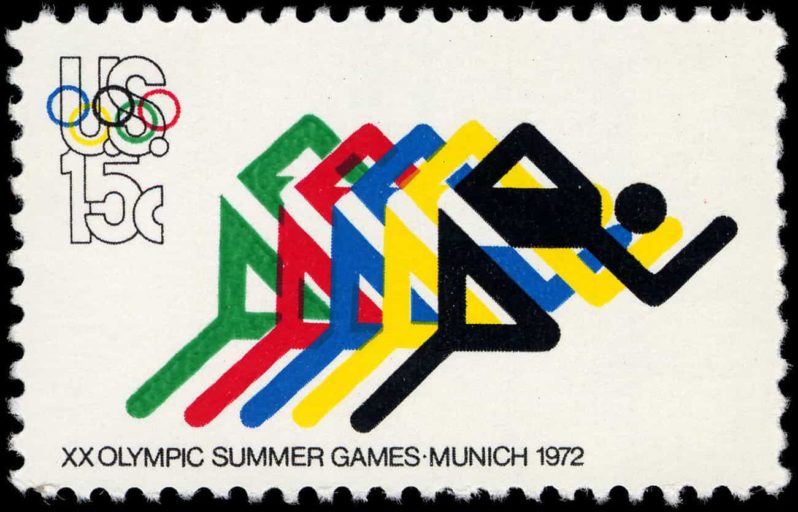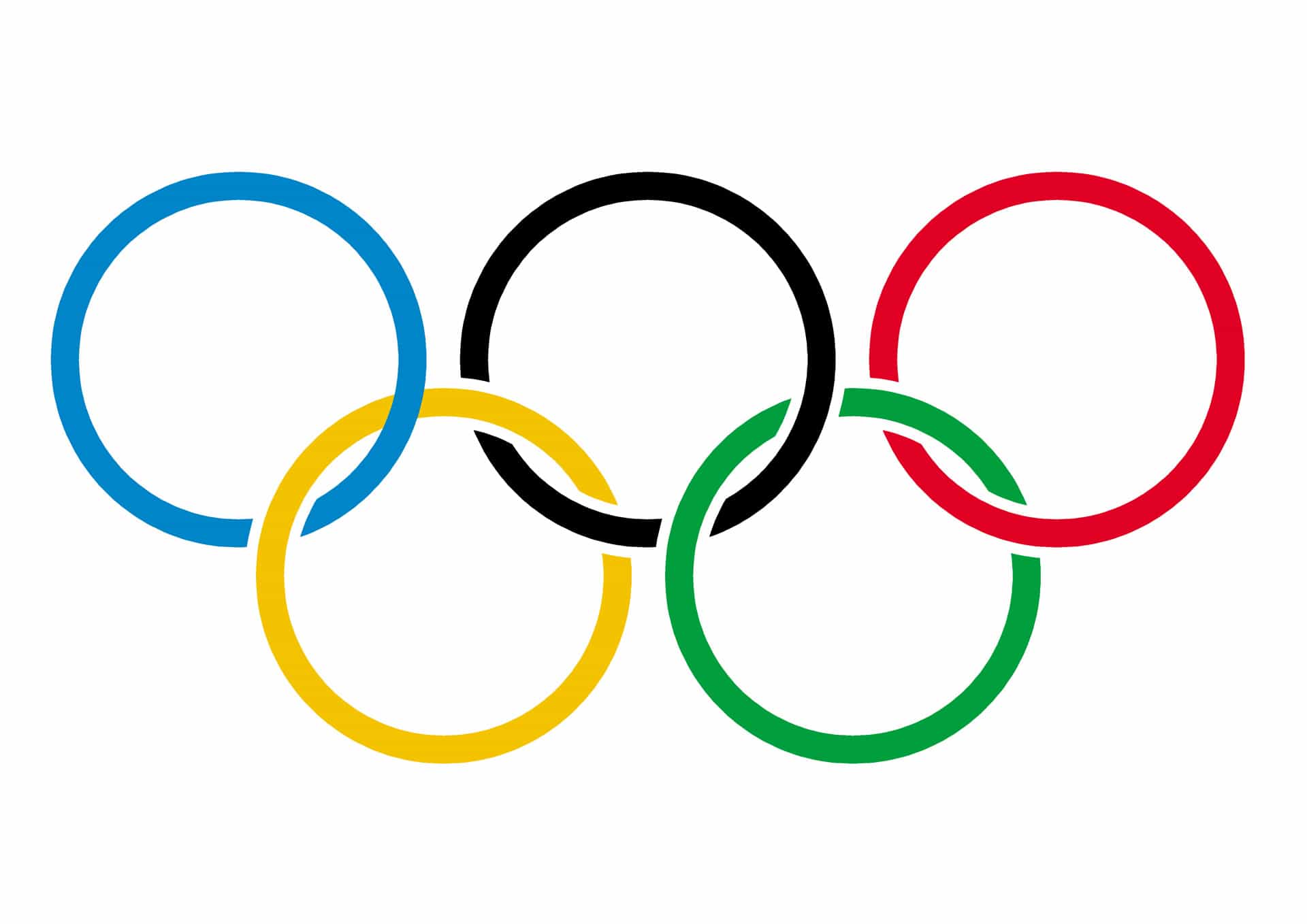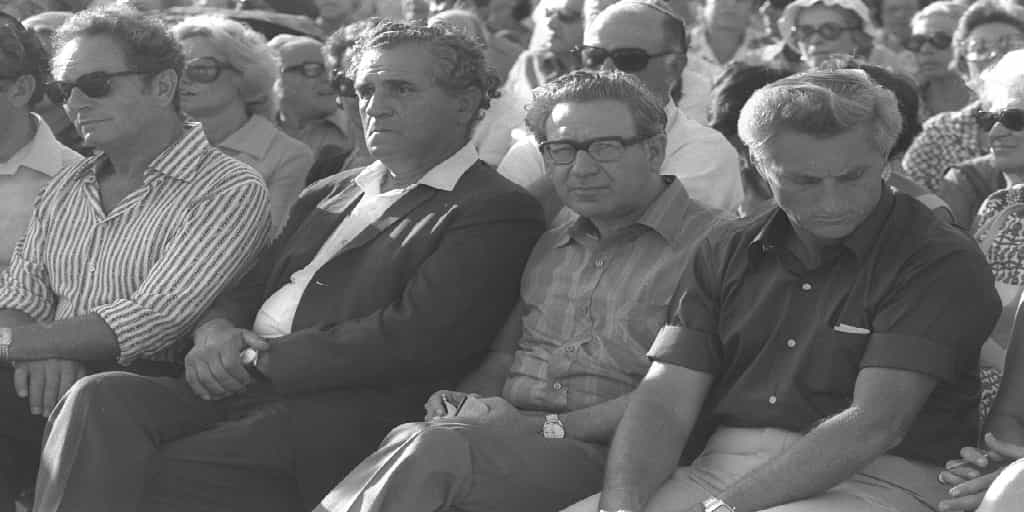The 2016 Olympic in Rio De Janero ended not too long ago, so I want to take the opportunity to talk about certain Olympic Games that are very important: the Games and events of the 1972 Munich Olympics. Forty-four years ago a tragic event shook the Olympic Village and the world- the Munich Massacre.

Early in the morning of September 5 eight members of the terrorist group Black September snuck into the Olympic Village of West Germany and took eleven Israelis hostage. The Israeli athletes won’t make it home.
Leading up to the attack
The first days of the Olympics went smoothly. The spirit of the Olympics was in full swing. The Israeli delegation had no need for concern, despite many of them having lost family in the Holocaust. There was some tension before the Games began because of divided Germany and the country’s dark chapter twenty- seven years before. People were anxious with World War II within living memory. It had only been twenty-five years since the UN Partition Plan, and the establishment of Israel. Israel was still so young. People were worried that could be an issue. However, there appeared to be no reason for any apprehension.
This time, things seems to be different.
What happened during the attack and Munich Massacre
On September 4, the Israeli Olympic team went out for the evening to see the play, The Fiddler on the Roof. Once returning to the Olympic Village late in the evening, they went straight to sleep for the big day that was to follow. It seemed like it was going to be a quiet night. But at 4:00 am eight members of the group “Black September: snuck into the Olympic Village by jumping the fence that surrounded it. The men were dressed in tracksuits, so they appeared to be athletes sneaking in past curfew. No one thought they were suspicious.
At 4:30 am, the Black September members entered the apartments of the the Israeli delegation, 31 Connolystrasse. They rounded up those staying in Apartments 1 and 3, and killed the two who dared fight back. A few of the Israeli athletes were able to escape through the windows. But it was a violent takeover, and in total, nine were taken hostage.

By 5:10 am athletes alerted the German police force that something was very wrong. The news of the hostage situation spread around the world. Once the police arrived the terrorists dropped a list of their demands out of the window of the apartment they were holding the Israelis hostage. They wanted 234 prisoners released from Israeli prisons and two from German prisons. They wanted these prisoners released by 9:00 am.
An attempt to save the Israeli athletes
The negotiators from the German Police force succeeded to push the deadline to 12:00 noon, and then to 1:00 pm… and then to 3:00 pm… and then to 5:00 pm. But still the terrorists refused to back down and release the Israeli team members. And at 5:00 pm the terrorists realized they would not see their demands come true. They made new demands: two planes to fly both themselves and the Israeli hostages to Cairo, Egypt. Their goal was to use the Egyptian setting to have their demands met.
In an attempt to end the standoff that had now lasted hours, the police force set up Operation Sunshine to storm the apartment building. There was only one problem: like the rest of the world, the terrorists were watching TV and keeping track of what was unfolding. They learned of the operation, quickly foiling that very plan.
At 10:30 the terrorists and hostages moved to the Firstemfeldbruck airport. While on the way, the police set up snipers around the airport to confront the terrorists. But once the Black September members and the Israeli hostages arrived, the Black September members realized German forces had surrounded them.
The German snipers began shooting, and the terrorists shot back. Two terrorists and one police officer were killed. Once German armored cars arrived as backup, one of the terrorists shot four of the hostages in one helicopter and then threw in a grenade. A second terrorist shot the remaining five Israelis in the second helicopter.
Three more terrorists were killed in a second round of gunfire, while the surviving three were taken into custody, thereby ending the horrific hostage event.
What Happened to the People of the Munich Massacre?
The names of the murdered Israelis were:
- Yosef Romano, weightlifter, 31 years old
- David Berger, weightlifter, 28 years old
- Ze’ev Friedman, weightlifter, 28 years old
- Eliezer Halfin, wrestler, 24 years old
- Mark Slavin, wrestler, 18 years old
- Yosef Futfreund, wrestling referee, 40 years old
- Moshe Weinberg, wrestling coach, 33 years old
- Amitzur Shapira, track coach, 40 years old
- Kehat Shorr, shooting coach, 53 years old
- Andre Spitzer, fencing coach, 27 years old
- Yakov Springer, weightlifting judge, 51 years old
The bodies of the five Palestinian terrorists killed during the gunfight were delivered to Lybia, where they were buried with full military honors. After October 29, 1972, German authorities released two of the three arrested terrorists.
At 1:00 pm on September 7th, ten of the athletes were repatriated in Israel. The body of the eleventh was sent to Cleveland, Ohio at the request of his family. The Israeli government organized a funeral for all of the athletes on the airport runway in Lod, Israel. Finally, Israel buried the bodies with many foreign diplomats, rabbis, Catholic and Greek Orthodox priests, and Israeli politicians in attendance.
Due to much outcry, the IOC suspended the Olympic Games for the first time in modern history with a memorial held on September 6th. The Olympic community flew the Olympic Flag at half- staff, along with the flags of many others. The International Olympic Committee encouraged the Games to continue, despite initial thoughts of the rest of the Games. IOC President Brundage stated,
“The Games must go on, and we must… and we must continue our efforts to keep them clean, pure, and honest.”
The Israeli government and the Israeli Olympic team chef de mission Shmuel Lalkin later endorsed the statement.
The Aftermath of the Munich Massacre
Five hours after learning of the attack, Avery Brundage, the president of the International Olympic Committee, declare the games would go on. It wasn’t until 4:00 pm that he changed his decision. The Olympic Games held a memorial service for the Israelis on September 6, 1972.
Terence Smith of the New York Times described the event:
“The victims’ immediate families and close relatives, many weeping uncontrollably, marched behind the command cars in a somber but disorganized procession. The sounds of their grief continued through the eulogies and prayers, which were occasionally drowned out by aircraft engines in the distance.[…]”
“At one point a distraught, heavyset, bearded man began running through the crowds of relatives, shrieking at them, in Hebrew, ‘You’re all fools! Don’t you know you are Jews? They will kill you off one by one. Don’t just cry, do something! Attack them!’ A score of policemen quickly surrounded the man, but, rather than jostle him away from the ceremony, they sought to control him—putting their arms around him, giving him water, daubing his forehead with a cool cloth.”
As a result of the Munich Massacre prompted many European countries to reconsider and make significant changes to their counter terrorism units. This including reorganizing existing units, and buying different weapons.

After the memorial service, the remaining Israeli team withdrew from the Olympics and left Germany. All Jewish sportsmen received additional security. Mark Spitz, American medal winning swimmer, had already finished his competitions and so decided to return to the United States early on September 6. On September 7, the Egyptian team left fearing reprisals. The Philippine and Algerian teams also left, as did members of the Dutch and Norwegian teams. Many the athletes who did stay described the lose of desire to compete as a result of the Massacre.
Response around the world
King Hussein of Jordan was the only leader of an Arab country to denounce the attack publicly, calling it a
“savage crime against civilization… perpetrated by sick minds.”
U.S. President Richard Nixon thought of several options for an American response.
- Declaring a national day of mourning (favored by Secretary of State William Rogers)
- Nixon attending the athletes’ funerals.
- Press the UN to take better steps against international terrorism.
In the end, Nixon went for pressing the UN to take greater steps against international terrorism.
Israel’s Response to the Munich Massacre
On September 5, 1972 Prime Minister Golda Meir appealed to other countries to
“save our citizens and condemn the unspeakable criminal acts committed. If we [Israel] should give in, then no Israeli anywhere in the world shall feel that his life is safe…. It’s blackmail of the worst kind.”
After the attacks Prime Minister Golda Meir and the Israel Defense committee authorized Mossad to track down and kill those responsible for the Munich Massacre. The operation, called Operation Wrath of G-d, and later received a lot of criticism both at home in Israel and in the international world.
However, Aharon Yariv wrote:
We had no choice. We had to make them stop, and there was no other way … we are not very proud about it. But it was a question of sheer necessity. We went back to the old biblical rule of an eye for an eye … I approach these problems not from a moral point of view, but, hard as it may sound, from a cost-benefit point of view. If I’m very hard-headed, I can say, what is the political benefit in killing this person? Will it bring us nearer to peace? Will it bring us nearer to an understanding with the Palestinians or not? In most cases I don’t think it will. But in the case of Black September we had no other choice and it worked. Is it morally acceptable? One can debate that question. Is it politically vital? It was.
Conclusion
Four years after the event, at the 1976 Olympic Games in Montreal, the Israeli delegation remembered the attack with a black ribbon adorned on the Israeli flag. The families of the victims have asked the IOC to create a memorial, but the IOC refused, stating that a specific reference to the victims
“could alienate other members of the Olympic community.”
In the 2012 London Games, the IOC again rejected a proposal to hold a moment of silence at the Opening Ceremony, deeming it inappropriate.
Consequently, on October 15, 1999, the IOC unveiled a memorial plaque in one of the large light towers outside the Sydney Olympics. In this year’s Olympics in Rio De Janeiro, the International Olympic Committee recognized the Massacre and incorporated a moment of silence in the victims’ memory.
What we have to learn, and remember, from the 1972 Munich Massacre is the Olympic Games is about sportsmanship, putting aside political differences, and play a good game. The games are about a good game. Consequently, nothing about what happened in 1972 Munich was in the spirit of the Olympic Games. In conclusion, it is our job to remember what the meaning of the Olympic Games is. We have to honor the memories of each of the victims, and we can do that by making sure something like this never happens again.
Furthermore, intolerance, hatred, and bad sportsmanship cannot be allowed. It is our duty to guard the spirit of the Olympics. Most of all, we must make sure nothing like the events of the 1972 Munich Massacre happen again.





